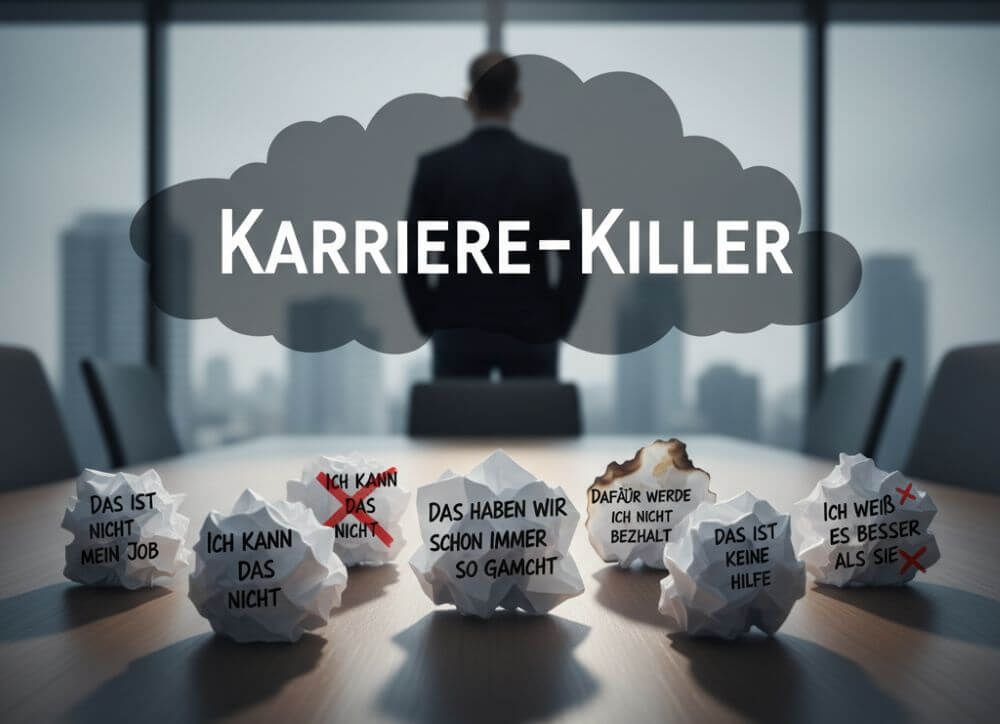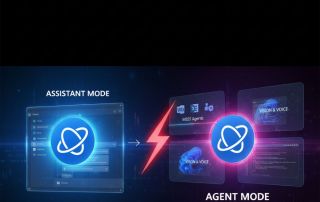Career killers: These 7 sentences you should never say to your boss
Have you ever said something at the office and regretted it the second it left your mouth? We’ve all been there. While minor slip-ups are often forgiven, certain phrases can instantly undermine your professionalism and permanently damage your career.
Words have power—especially in conversations with superiors. Often, it’s not the intention that matters, but how the message is received. Here are the seven most dangerous phrases in professional life and how to phrase them better.

These 7 sentences you should never say to your boss
1. “That’s not in my job description.”
This sentence is the quickest way to be labeled as inflexible and uncommitted. Managers are looking for problem solvers, not for people who just follow the rules. Even if the task is genuinely new, this sentence sounds like resistance.
A better approach is to say:
“I’d be happy to take that on. Since this will shift the priorities of my current projects, could we briefly discuss what I should postpone to make room for it?”
2. “That’s how we’ve always done it.”
Innovation is the driving force of every company. This phrase signals stagnation, fear of change, and a lack of creativity. It makes you seem stuck in the past.
It’s better to say:
- “That’s an interesting approach. Let’s see how we can integrate that with our existing processes to achieve the best possible outcome.”
3. “I’ll try.”
“Try” implies the possibility of failure. It sounds uncertain and noncommittal. When push comes to shove, managers want reliability, not vague attempts. As Yoda said, “Do or do not. There is no try.”
It’s better to say:
-
-
- I’ll take care of it and get back to you with an update by [time].
-
4. “That’s not my fault.”
Nobody likes being blamed. Even if it’s true, this statement comes across as defensive and childish. In professional life, it’s not about blame, but about solutions. Anyone who immediately deflects responsibility doesn’t appear to be a team player.
It’s better to say:
- “Let’s analyze what went wrong so we can make sure it doesn’t happen again.”
5. “I can’t work with [colleague X].”
This statement makes you—not your colleague—seem difficult. It shows that you can’t professionally resolve personal differences. Supervisors expect you to get along with different personalities without having to act as a mediator.
It’s better to say:
- “I feel that our working styles are clashing on this project. I would like to suggest separating the areas of responsibility more clearly in order to be more efficient.”
6. “I don’t have time.” / “I’m too busy.”
Why this is a mistake: Everyone is busy. This statement often sounds like poor time management or simply disinterest. If you brush off your boss, you might be blocking your next promotion.
A better way to say:
- “I’d love to help, but my calendar is currently full with [Project A]. Should I prioritize this new topic?”
7. “I assume that’s impossible.”
Pessimism is contagious—and undesirable. If you immediately dismiss an idea without examining it, you come across as a blocker. Managers appreciate employees who look for ways to make the impossible possible (or at least find a good alternative).
It’s better to say:
- “That will be a challenge under the current circumstances. Let me look into what resources we would need to make it happen.”
Conclusion: Diplomacy is the key to advancement
It’s not about agreeing with everything or exploiting yourself. It’s about framing. The way you set boundaries, address problems, or give feedback determines whether you’re perceived as a solution-oriented professional or a complainer.
Pay close attention to your word choice next week—small changes can have a big impact on your reputation within the company.
Beliebte Beiträge
From assistant to agent: Microsoft’s Copilot
Copilot is growing up: Microsoft's AI is no longer an assistant, but a proactive agent. With "Vision," it sees your Windows desktop; in M365, it analyzes data as a "Researcher"; and in GitHub, it autonomously corrects code. The biggest update yet.
Never do the same thing again: How to record a macro in Excel
Tired of repetitive tasks in Excel? Learn how to create your first personal "magic button" with the macro recorder. Automate formatting and save hours – no programming required! Click here for easy instructions.
IMAP vs. Local Folders: The secret to your Outlook structure and why it matters
Do you know the difference between IMAP and local folders in Outlook? Incorrect use can lead to data loss! We'll explain simply what belongs where, how to clean up your mailbox, and how to archive emails securely and for the long term.
Der ultimative Effizienz-Boost: Wie Excel, Word und Outlook für Sie zusammenarbeiten
Schluss mit manuellem Kopieren! Lernen Sie, wie Sie Excel-Listen, Word-Vorlagen & Outlook verbinden, um personalisierte Serien-E-Mails automatisch zu versenden. Sparen Sie Zeit, vermeiden Sie Fehler und steigern Sie Ihre Effizienz. Hier geht's zur einfachen Anleitung!
Microsoft 365 Copilot in practice: Your guide to the new everyday work routine
What can Microsoft 365 Copilot really do? 🤖 We'll show you in a practical way how the AI assistant revolutionizes your daily work in Word, Excel & Teams. From a blank page to a finished presentation in minutes! The ultimate practical guide for the new workday. #Copilot #Microsoft365 #AI
Integrate and use ChatGPT in Excel – is that possible?
ChatGPT is more than just a simple chatbot. Learn how it can revolutionize how you work with Excel by translating formulas, creating VBA macros, and even promising future integration with Office.

































